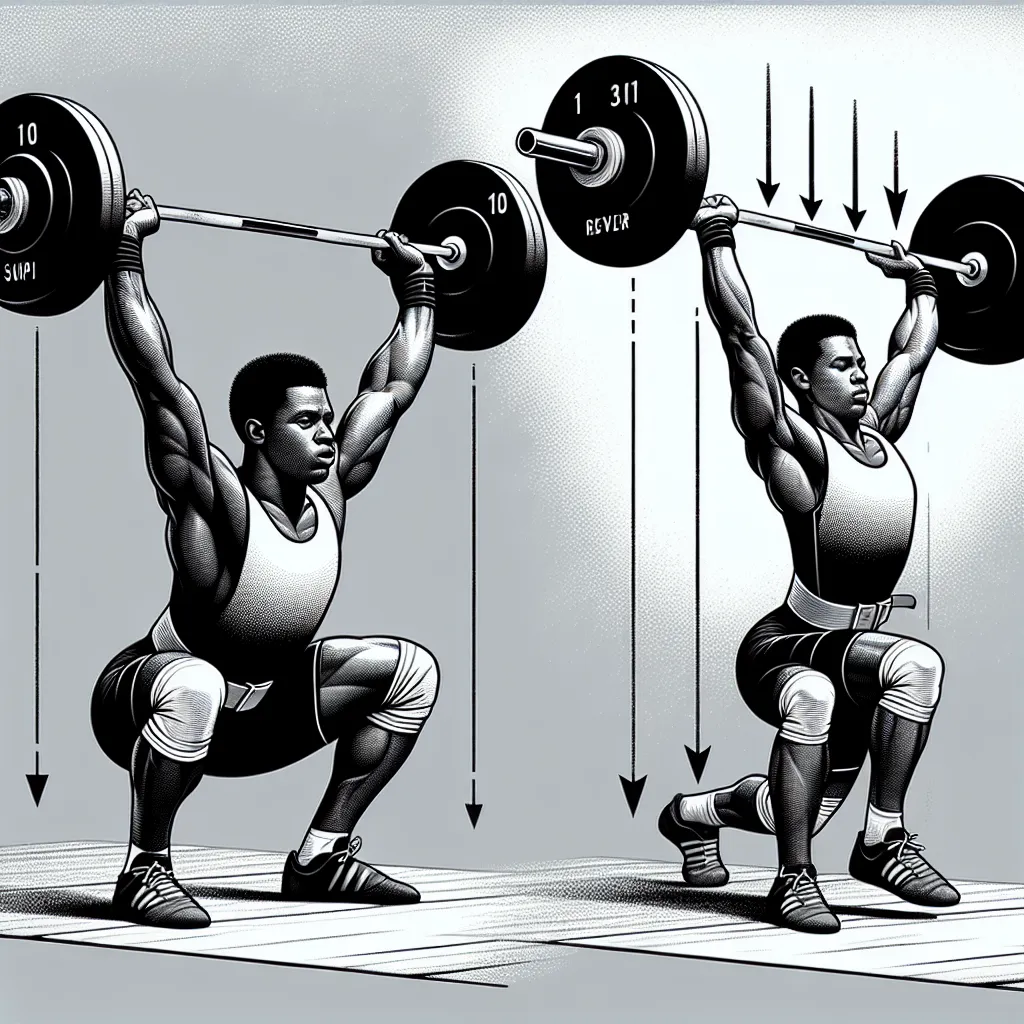Olympic lifting, also known as weightlifting, is a sport that showcases incredible strength and technique. For IELTS test-takers, understanding the vocabulary associated with this sport can be crucial for success in various sections of the exam. Let’s dive into the key terms and phrases related to Olympic lifting, and explore how to effectively use them in your IELTS preparation.
Introduction to Olympic Lifting Terminology
Olympic lifting is a sport that involves two main lifts: the snatch and the clean and jerk. These terms are essential for anyone discussing this sport in English.
Snatch
- Definition: A lift in which the barbell is raised from the ground to overhead in one continuous motion.
- Part of speech: Noun (can also be used as a verb)
- Pronunciation: /snætʃ/
Clean and Jerk
- Definition: A two-part lift where the barbell is first lifted to the shoulders (clean), then overhead (jerk).
- Part of speech: Noun phrase
- Pronunciation: /kliːn ænd dʒɜːrk/

Context and Usage of Olympic Lifting Vocabulary
Understanding how to use these terms in context is crucial for IELTS success. Let’s examine some examples:
-
“The athlete performed a perfect snatch, lifting 120 kg with ease.”
- This sentence demonstrates the use of “snatch” as a noun, describing the specific lift.
-
“During the competition, competitors must complete both the snatch and the clean and jerk.”
- Here, we see both terms used together, highlighting the two main components of Olympic lifting.
-
“Her technique in the clean and jerk was flawless, allowing her to set a new personal record.”
- This example shows how to describe performance in the clean and jerk.
-
“Olympic lifters train rigorously to improve their snatch technique and increase their maximum lift.”
- This sentence uses “snatch” as a noun modifier, describing the type of technique.
-
“The crowd held their breath as the lifter attempted to snatch the heaviest weight of the competition.”
- Here, “snatch” is used as a verb, demonstrating its versatility in the language.
These terms are most likely to appear in IELTS Reading passages about sports or fitness, or in Writing Task 2 essays discussing athletics or Olympic events. They may also be useful in Speaking Part 2 when describing a sporting event or athlete.
Analyzing Olympic Lifting Vocabulary
Word Structure
- Snatch: A single-syllable word with no prefix or suffix.
- Clean and Jerk: A compound term consisting of two verbs joined by “and”.
Synonyms and Antonyms
While these terms are specific to Olympic lifting, we can explore related vocabulary:
-
Lift (synonym for both snatch and clean and jerk)
- Definition: To raise something
- Part of speech: Verb (can also be a noun)
- Pronunciation: /lɪft/
-
Hoist (synonym for lift)
- Definition: To raise or lift, especially with mechanical help
- Part of speech: Verb
- Pronunciation: /hɔɪst/
-
Drop (antonym for lift)
- Definition: To let fall or cause to fall
- Part of speech: Verb
- Pronunciation: /drɒp/
Memorization Techniques for Olympic Lifting Vocabulary
Mind Mapping
Create a mind map with “Olympic Lifting” at the center, branching out to “Snatch” and “Clean and Jerk”. Add related terms like “barbell”, “technique”, and “strength” to each branch.
Storytelling
Imagine a story about an Olympic lifter preparing for a competition. Visualize them practicing the snatch, then moving on to the clean and jerk. This mental imagery can help cement the vocabulary in your memory.
Practicing Olympic Lifting Vocabulary
Application Exercises
-
Write a paragraph describing an Olympic lifting competition, using both “snatch” and “clean and jerk” correctly.
-
Create a dialogue between a coach and an athlete discussing improvements in snatch technique.
-
For IELTS Writing Task 1, practice describing a graph showing the progression of world records in Olympic lifting over time.
Repetition and Review
Set reminders to review these terms regularly, perhaps creating flashcards with definitions and example sentences on the back.
Conclusion
Mastering Olympic lifting vocabulary can significantly enhance your performance in the IELTS exam, particularly in Reading and Writing tasks related to sports. Remember to practice using these terms in context, and don’t hesitate to incorporate them into your Speaking responses when relevant.
We encourage you to share your experiences learning this vocabulary in the comments below. How have you found ways to use “snatch” and “clean and jerk” in your IELTS preparation? Do you have any questions about using these terms effectively in the exam?